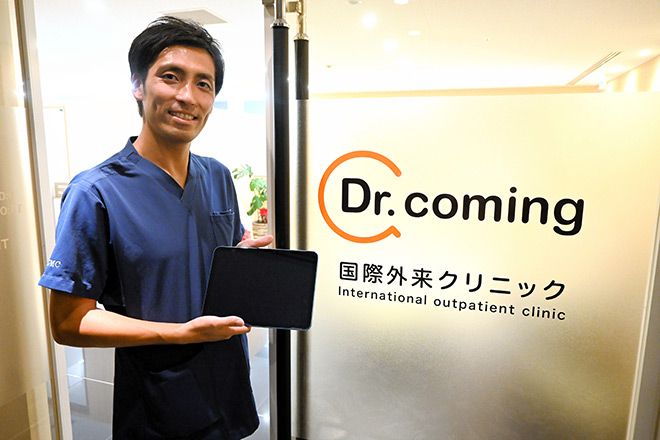KYOTO–In a sign of the times, a medical clinic that offers services in 31 languages has opened in this historic city overrun with foreign tourists.
The clinic is in a hotel directly connected to JR Kyoto Station. It started business on Sept. 1.
Previously, Kyoto seemed to lack hospitals or clinics with doctors who could handle sudden illnesses such as fever in multiple languages despite surging foreign visitor numbers to the city.
The clinic is the brainchild of Yudai Tomita, a 41-year-old Hyogo Prefecture resident and chairman of medical corporation Doctor Coming.
It originated from his own experience of travelling to 60 countries as a student backpacker and coming down with sudden diarrhea accompanied by fever. He fell sick in a country where he couldn’t communicate in the local language.
Tomita, originally from Tsurumi Ward in Osaka, worked part-time as a bartender and retook the National Center Test for University Admissions in his late 20s. Afterward, he enrolled in the Faculty of Medicine at the University of the Ryukyus.
He later worked as a pediatrician at a hospital in Hyogo Prefecture.
In 2023, Tomita set up the Doctor Coming service, which offers house calls for children who suddenly fall sick during holidays and nighttime.
While this service is covered by health insurance, he also began making house calls to foreign guests staying at luxury hotels in Osaka. Even though the service was not covered by health insurance and cost a hefty 100,000 yen ($678) per visit, it was well received. This cost included prescribed medicine and an explanation of what was ailing the person.
During the course of his research, Tomita found that there were only around five clinics in Tokyo and its surrounding area specializing in foreign patients. Sensing a business opportunity, he decided to open his clinic in Kyoto.
The Dr. Coming International Clinic Kyoto Station is located on the sixth floor of Hotel Granvia Kyoto. It is inside the Clinics Mall at the Kyoto Station Building. This mall houses several medical institutions, including pediatrics, ophthalmology, psychosomatic and cosmetic dermatology clinics, as well as a pharmacy.
The Dr. Coming clinic has partnered with a company that provides medical interpretation in 31 languages. Foreign patients can get check-ups from a doctor with an online interpreter.
Medications are delivered from a pharmacy within the same hotel, and instructions for use and potential side effects are explained. The cost per consultation ranges from 40,000 yen to 50,000 yen. It can be covered by overseas travel insurance as with house calls made from hotel rooms.
The Kyoto City Tourism Association welcomed the addition of the clinic, saying it frequently receives complaints from foreign tourists who developed sudden illnesses but were unable to communicate with local doctors or were turned away.
Sometimes, the association staff have asked doctors who are members of the association to accept these patients.
Yuji Umezawa, director of the Kyoto tourist information center and an official with the Kyoto City Tourism Association, also was heartened by the development.
“We’re truly glad to have a facility where we can guide foreign visitors. This helps a lot,” he said.
Tomita hopes to open similar clinics in Osaka and overseas.
“There are many countries where only wealthy people can afford medical care,” he said. “My dream is to realize ‘medical redistribution,’ where we charge affluent patients fees that match their ability to pay and use the money to help sick street children.”


AloJapan.com